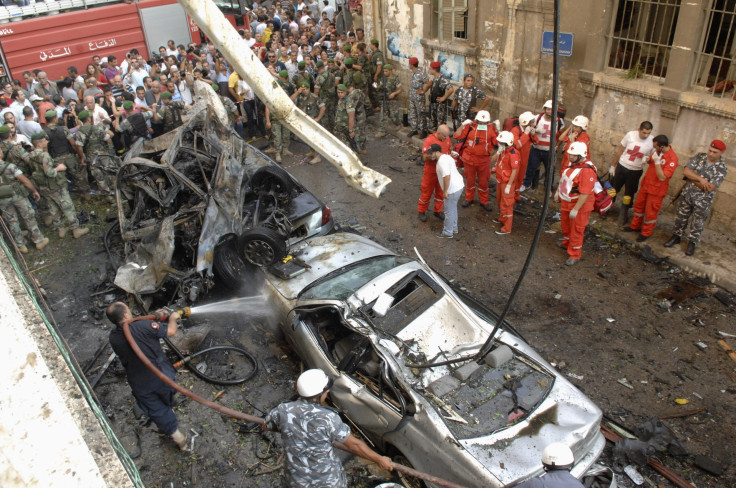Car Bomb In Beirut, Lebanon Suggests Spillover From Syrian Conflict

A massive car bomb rocked Lebanon’s capital city of Beirut on Friday. The explosion went off in the majority-Christian neighborhood of Ashrafiyeh just before 3 p.m. At least eight people are dead and 80 more wounded, according to Reuters.
The blast is worse than any that has occurred in Beirut for years, sparking fresh concerns about an uptick in violence spilling over from neighboring Syria.
There, a 19-month uprising against the regime of President Bashar al-Assad has cost about 30,000 lives, and there is no end in sight. The conflict pits majority-Sunni rebels against a regime that is mostly Alawite, an offshoot of Shia Islam.
About 300,000 people have fled Syria so far, and up to 100,000 have sought refuge in Lebanon -- despite the fact that religious and political tensions are high there as well.
It is still unclear who is responsible for Friday's attack in Beirut or whether politics and religion were motivating factors. The explosion went off just 650 feet away from the offices of the Phalange, a mostly Christian political bloc headed up by Sami al-Gemayel.
“Let the state protect the citizens,” he said to Reuters. “We will not accept any procrastination in this matter; we cannot continue like that. We have been warning for a year. Enough.”
Phalange is a part of the anti-Syrian March 14 alliance, a political coalition headed up by Saad Hariri, who was prime minster from 2009 to early 2011. He is best known as the son of Rafik Hariri, a polarizing figure in Lebanon who served 10 years as prime minster but was assassinated in 2005.
The elder Hariri had been vehemently opposed to Syrian troop presence in his country. Ever since Lebanon’s devastating 15-year civil war, which was effectively ended in 1990 by a massive Syrian offensive, Syrian troops had occupied the country and exercised political power through the militant Shia Islamic group they supported, Hezbollah.
Rafik Hariri was killed when a van exploded beside his motorcade in Beirut. Lebanese citizens opposed to the Syrian occupation were quick to pin the blame on Hezbollah and Damascus; their outrage culminated in the two-month Cedar Revolution, an uprising that finally forced Syrian troops to withdraw from Lebanon entirely in April of 2005.
But Hezbollah still wields considerable power in Lebanon, keeping tensions high. Sporadic clashes, typically pitting Western-allied Sunni Muslims and Christians against Shias who support Hezbollah and the Syrian regime, have not abated since 2005.
Following Friday’s massive explosion, officials are tensely awaiting the results of investigations that may reveal whether the car bomb in Ashrafiyeh was another symptom of Syrian spillover.
© Copyright IBTimes 2024. All rights reserved.





















